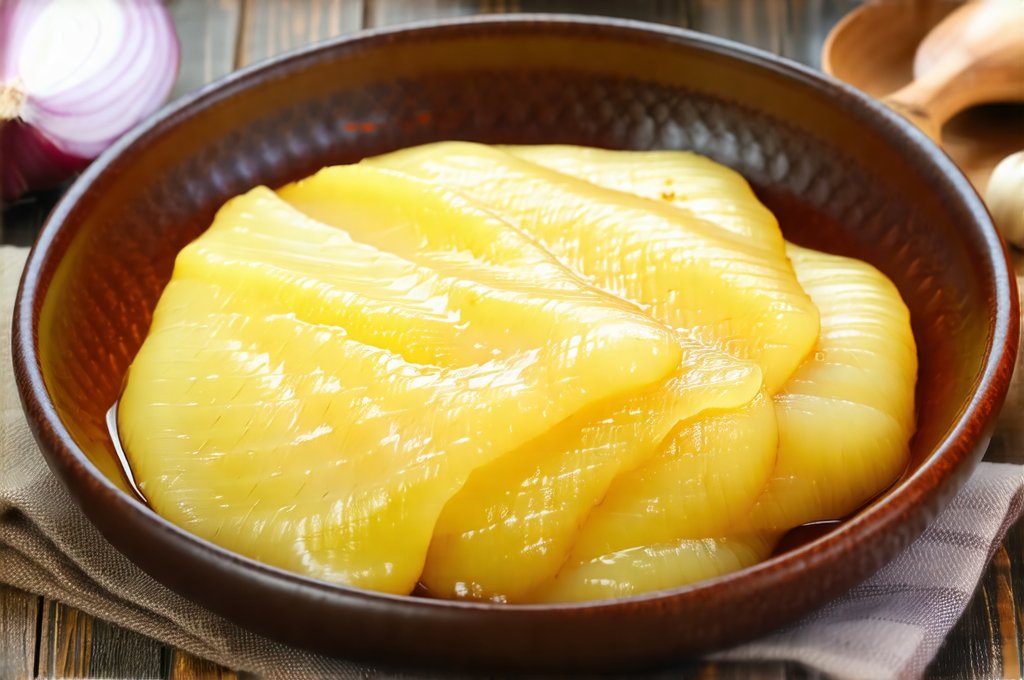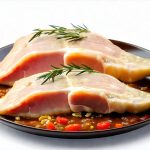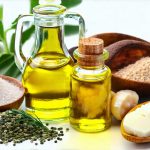Digesting fats efficiently is crucial for overall well-being, impacting everything from nutrient absorption to energy levels and even cognitive function. However, not all fats are created equal when it comes to ease of digestion. Some individuals experience bloating, discomfort, or other digestive issues after consuming certain types of fat, while others tolerate them perfectly fine. This variation stems from several factors – the type of fatty acids within the fat itself (saturated, unsaturated, trans), its molecular structure, how well our bodies naturally produce enzymes to break it down, and even individual gut health. Understanding these differences allows us to make informed choices about cooking fats that support comfortable digestion and optimize nutrient uptake. It’s important to remember that “healthy” doesn’t automatically equate to “easily digestible,” and what works best for one person may not work best for another.
This article will explore the nuances of different cooking fats, focusing on those generally considered easier to digest than others. We’ll delve into why certain fats are more readily broken down by our digestive system, outlining specific examples and providing practical considerations for incorporating them into your diet. The goal isn’t to demonize any particular fat but rather to empower you with knowledge so you can choose options that align with your body’s needs and sensitivities. We will focus on fats commonly used in cooking, avoiding highly specialized or exotic oils. Ultimately, a balanced approach – prioritizing whole foods, mindful eating, and listening to your body’s signals – is the key to optimal digestive health.
Understanding Fat Digestion & Absorption
Digesting fats is a multi-step process that begins in the mouth (albeit minimally) but truly kicks into gear in the small intestine. Unlike carbohydrates or proteins, fat isn’t water soluble, meaning it can’t be directly absorbed into the bloodstream. This is where bile, produced by the liver and stored in the gallbladder, comes into play. Bile acts as an emulsifier, breaking down large fat globules into smaller droplets – a process called emulsification — increasing their surface area for enzymatic action. The primary enzyme responsible for fat digestion is lipase, secreted by the pancreas. Lipase breaks down triglycerides (the main component of dietary fats) into fatty acids and glycerol. These smaller molecules can then be absorbed through the intestinal walls, packaged into chylomicrons, and transported via the lymphatic system into the bloodstream.
The ease with which this process unfolds depends heavily on the type of fat being digested. Saturated fats tend to pack more tightly together, requiring more bile and lipase activity for efficient breakdown. Unsaturated fats, particularly those with shorter chain lengths or a higher proportion of cis isomers, are generally easier for enzymes to access and break down. Furthermore, factors like gut motility (how quickly food moves through the digestive system) and the health of your microbiome significantly impact fat digestion. A healthy gut microbiome produces enzymes that can aid in fat metabolism, while impaired motility can lead to incomplete digestion and discomfort.
Finally, the amount of fiber consumed alongside fats plays a role; sufficient fiber aids in bile acid binding, promoting elimination and preventing issues like diarrhea. Consistently consuming large amounts of difficult-to-digest fats without adequate fiber intake or a healthy gut microbiome can overwhelm the digestive system, leading to symptoms like bloating, gas, and abdominal pain. It is also important to note that cooking methods affect digestibility; high heat can damage some unsaturated fats, potentially making them harder to digest. Understanding how certain cooking oils make reflux symptoms worse can help you choose wisely.
Easier-to-Digest Cooking Fat Options
Several cooking fats stand out as being relatively easier on the digestive system for most people. Coconut oil, despite its high saturated fat content, often fares well due to its medium-chain triglycerides (MCTs). MCTs are shorter in length than long-chain triglycerides found in many other fats and don’t require bile salts for absorption, meaning they’re directly absorbed into the bloodstream, bypassing some of the more challenging digestive steps. Olive oil, particularly extra virgin olive oil, is another excellent choice due to its high proportion of monounsaturated fatty acids and polyphenols (antioxidants). These compounds support healthy digestion and reduce inflammation in the gut.
Avocado oil also boasts a high percentage of monounsaturated fats and has a neutral flavor profile making it versatile for cooking. Finally, ghee – clarified butter — is often better tolerated than regular butter by those with lactose intolerance or sensitivity to dairy because the milk solids (containing lactose) have been removed during the clarification process. It’s important to note that even within these options, individual tolerance varies. Starting with small amounts and gradually increasing intake can help determine your personal limits. Furthermore, choosing high-quality, minimally processed versions of these fats is always recommended to ensure optimal digestibility and nutritional value. If you find yourself struggling with digestive issues, it may be helpful to review if are some cooking oils easier to digest for you.
MCT Oil & Coconut Oil: A Closer Look
MCT oil, derived from coconut oil (or sometimes palm kernel oil), is gaining popularity for its potential health benefits and ease of digestion. As mentioned earlier, the shorter chain length of MCTs allows them to be absorbed more rapidly than long-chain triglycerides, putting less strain on the digestive system. This can be particularly beneficial for individuals with conditions like malabsorption or gallbladder issues. However, pure MCT oil can sometimes cause gastrointestinal upset in large quantities – starting with just a teaspoon and gradually increasing is advisable.
Coconut oil itself contains approximately 60% MCTs, along with long-chain triglycerides and other compounds. While not as concentrated as MCT oil, it still offers digestive advantages. It’s also important to choose unrefined coconut oil for the best nutritional profile – refined versions undergo processing that can diminish some of their beneficial properties. A key distinction: fractionated coconut oil undergoes further processing to remove most long-chain triglycerides, resulting in a nearly pure MCT oil product. This is often used in specialized diets but isn’t necessarily superior for everyday cooking.
Olive Oil & Avocado Oil: Monounsaturated Marvels
Both olive oil and avocado oil are rich in monounsaturated fatty acids (MUFAs), particularly oleic acid, which has been linked to improved heart health and reduced inflammation. These fats are generally easier to digest than saturated or polyunsaturated fats because they require less bile for emulsification. Extra virgin olive oil (EVOO) is the least processed form and retains its valuable antioxidants – polyphenols — that further support digestive health. However, EVOO has a lower smoke point, making it unsuitable for high-heat cooking; refined olive oil can withstand higher temperatures but loses some of its nutritional benefits.
Avocado oil boasts an even higher smoke point than most olive oils, making it ideal for sautéing, frying, and baking. It also possesses a mild flavor that doesn’t overpower other ingredients. Like EVOO, choosing cold-pressed avocado oil ensures minimal processing and preservation of nutrients. A potential downside: due to its relative scarcity, high-quality avocado oil can be more expensive than other options. Prioritizing the benefits of cooking at home for reflux control will help you choose wisely.
Considerations for Sensitive Digestion
For individuals with particularly sensitive digestion or specific conditions like Irritable Bowel Syndrome (IBS), some additional strategies can further enhance fat tolerance:
- Start Small: Introduce new fats gradually and in small quantities to assess your individual response.
- Combine with Fiber: Pair fats with fiber-rich foods to aid digestion and prevent discomfort. – Examples include adding avocado to a salad or using olive oil to dress vegetables.
- Chew Thoroughly: Proper chewing initiates the digestive process, breaking down food into smaller particles.
- Consider Enzyme Supplementation: If you suspect enzyme deficiencies, consult with a healthcare professional about potential supplementation (e.g., lipase). This should not be self-diagnosed or treated.
- Identify Trigger Foods: Keep a food diary to pinpoint fats that consistently cause digestive issues and adjust your diet accordingly. Everyday foods that inflame the lower esophageal sphincter may also contribute to discomfort.
- Prioritize Whole Foods: Focus on obtaining fats from whole, unprocessed sources rather than processed foods containing hidden fats. This ensures you’re also getting beneficial nutrients alongside the fat.
It’s important to reiterate: this information is for general knowledge and informational purposes only, and does not constitute medical advice. Always consult with a qualified healthcare professional for any health concerns or before making any decisions related to your health or treatment.


















